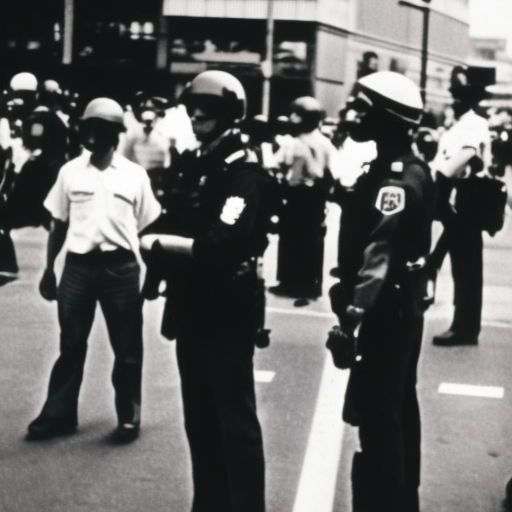Summary:
The protests of 1968 were a series of demonstrations and uprisings that occurred worldwide. These protests were fueled by a variety of social, political, and cultural issues, including opposition to the Vietnam War, civil rights, student activism, and the desire for greater social change. The protests of 1968 had a significant impact on society, leading to changes in government policies, cultural norms, and the way people viewed activism.
Background:
The 1960s was a decade marked by social and political turmoil. The civil rights movement was gaining momentum in the United States, challenging racial segregation and discrimination. The Vietnam War was also a major source of discontent, with many young people protesting against the war and the government’s handling of it. Additionally, the feminist movement was gaining traction, advocating for women’s rights and equality.
Key Protests:
- May 1968 protests in France: The protests in France began as a student movement against the conservative policies of President Charles de Gaulle. The demonstrations quickly spread to workers, leading to a general strike that paralyzed the country. The protests ultimately resulted in significant political and social changes in France.
- Prague Spring: In Czechoslovakia, the Prague Spring was a period of political liberalization and reform. However, the Soviet Union and other Warsaw Pact countries invaded Czechoslovakia to suppress the reforms, leading to widespread protests and resistance.
- Democratic National Convention protests: In the United States, the Democratic National Convention in Chicago became a focal point for protests against the Vietnam War. Thousands of demonstrators clashed with police, resulting in a violent confrontation that was broadcasted on television and further fueled anti-war sentiment.
- Mexican student movement: In Mexico City, students organized protests against the authoritarian government and demanded greater political freedoms. The protests culminated in the Tlatelolco massacre, where hundreds of students were killed by government forces.
Impact:
The protests of 1968 had a profound impact on society and politics. They brought attention to important issues and forced governments to address them. The protests also inspired a new wave of activism and social movements that continued throughout the 1970s.
In France, the May 1968 protests led to significant political changes. President de Gaulle dissolved the National Assembly and called for new elections. The protests also sparked a cultural revolution, challenging traditional norms and advocating for greater personal freedoms.
The Prague Spring and its subsequent suppression by the Soviet Union highlighted the limitations of political reform within the Eastern Bloc. It also demonstrated the determination of the people to fight for their rights and resist oppressive regimes.
In the United States, the protests against the Vietnam War played a crucial role in shaping public opinion. The anti-war movement gained momentum, leading to increased pressure on the government to end the war. The protests also contributed to a broader questioning of authority and the status quo.
The Mexican student movement and the Tlatelolco massacre exposed the repressive nature of the Mexican government and sparked outrage both domestically and internationally. The event led to increased scrutiny of human rights abuses in Mexico and inspired further activism against authoritarian regimes.
Overall, the protests of 1968 were a turning point in history. They challenged the existing power structures, brought attention to important social issues, and inspired a new generation of activists. The impact of these protests can still be felt today, as they continue to shape political and social movements around the world.












